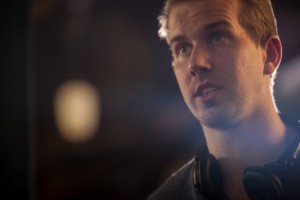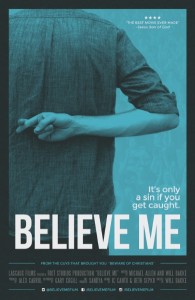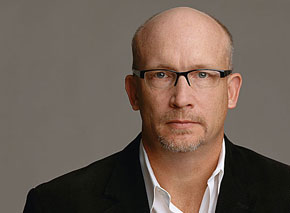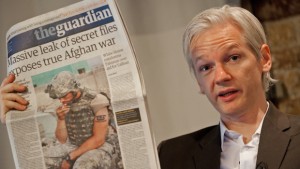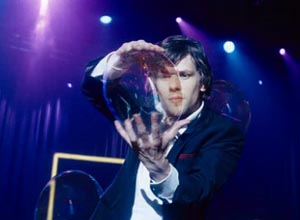Interview: Drew Waters of “The Ultimate Life”
Posted on January 11, 2014 at 8:13 pm
The Ultimate Gift, based on the book by JIm Stovall
had James Garner as a wealthy man who left his grandson twelve “gifts” to teach him that the true meaning of life is not about money but about love, compassion, and giving. Now this inspiring film has led to a prequel, the story of how the character played by Garner learned those lessons himself. Between the pressure of running a foundation started by his late grandfather, being sued by his greedy extended family, and seeing his beloved Alexia leave on an extended mission trip to Haiti, Jason Stevens’ world is unraveling. But when Jason discovers the lifelong journal his grandfather began as a Depression-era lad, Red Stevens’ writings transport Jason to a front-row seat on an incredible rags-to-riches ride. With everything he loves hanging in the balance, Jason hopes he can discover the real meaning of “The Ultimate Life.” I spoke to Drew Waters, who stars in “The Ultimate Life,” now available on DVD/Blu-Ray.
Tell me a little bit about this new film.
The Ultimate Life is a prequel/sequel to “The Ultimate Gift.” It shows how Red Stevens earned his billion dollars and what he learned. The ultimate thing is that money can’t buy everything and it isn’t the end-all. It’s love and happiness that you have around you at the end of the day that is the most important thing. And Red loses that during the search and his struggle for the almighty dollar. And at the end of it, when he finally gets it, he realizes he belongs and that he kind of pushed aside everybody who cared about him in that pursuit. And so there’s a great family redemptiveness within it.
What were the challenges in making the sequel?
Well, it happens in two different periods/ages of Red’s life. So it starts out with Austin James playing the young Red. The funny thing about it, we are both from Texas and we never met each other. So we had to make sure that we both kept Red’s character true to what James Garner played in the first movie and trying to interact and intertwine little quirks and characteristics that make you feel like you are going back in time from “The Ultimate Gift.”
The journals are really are a character in the film.
Red was a big believer in writing down his thoughts. It shows you how he learned that through “The Ultimate Life.” Writing down your thoughts helps you think things through. When you say it out loud and you write something down, it helps you think through things and come up with a solution. And it also gives a timeline in your life, which, in the movie was a great help to the character Jason to overcome his own struggles within his life and try to figure his life out and how the businesses took so much of his time away. And Red’s journals give a very documented look to his life and the struggles that he went through throughout everyday towards chasing his goal and then realizing the goal that he was chasing was the wrong one. And that was something Jason really learned at the end of the movie and allows himself to start chasing the real goals in his life.
What would you say is the age group for this movie?
It is a great family-friendly story about redemption and there is nothing inappropriate. You are never too young to start learning good morals and boundaries and balance within your life. I kind of loved Red’s life growing up. I started working when I was 12 years old and my dad was a blue collar worker. He worked hard. Some would say he was a workaholic. And I grew up, joined the military and when I came back, I became the same. I started chasing money instead of happiness. Until I had a daughter. I woke up and said, “I am doing the wrong thing here. I am chasing something that is not important to me as this” and so I changed my life and I started chasing passion and because of it, I am a better father for it, I am a better person for it. I have more joy in my life because I am happy about what I do every day.
You are one of three actors who play this role. So how do you try to make that seamless for the audience?
When I met with Michael Landon, Junior, the director, we started talking about it a little bit and I told him that I am a big fan of James Garner. I went back and watched some of his old movies and I went back and really tried to catch some of his movements and the quirks that he has and the traits within his characters. But when Austin came in to play the younger Red, he and I never met before we started shooting this movie. I was already on set two weeks when Austin came in. But he’s a Texas boy, I am a Texas boy. He rodeos, I rodeo. The only thing different about Austin is that he’s left-handed and I am right-handed.
I met him two weeks into the shooting. He came in and I started talking to him about “Hey, I am taking Red this way…” And he’d say, “I swear I was thinking of taking him that way, too.” Our characteristics already matched to who we were. All we had to do was portray it in Red’s character and it works well. I think it works really well.
What do you want families to talk about when they see this movie?
I am a big fan of these kind of movies and for this reason alone… is that it doesn’t discriminate anybody… it doesn’t matter what race, belief… anything. Anybody can sit side by side and watch this movie and not feel threatened in any way. And everybody will take a different message from it, depending on where they are at in their lives and how they are feeling. What we’d like to see is people open up the doors of communication and start having a conversation. No matter where you are at in your life or what struggles you are going within your life, the movie itself has that redemptive message. People can take from that message and build in for their own lives and open up the doors of communication and have conversations and see where they go. And to me, that’s what storytelling is about. It’s not to try to tell somebody something but to open up the imagination and the process of thought and go out and ask questions and try to learn.
You talked about how this affected you as a father. What kinds of things do you do with your children to help them understand that important message?
Well, for me, it’s passion. I grew up with respect. I grew up with a handshake being the structure of business deals. If you say something, then you need to try and fulfill that to the best of your ability. Well, you need to explain why something doesn’t work and try to figure out the ways to fix it. Everybody is so fearful of people being sued and people coming back at them and no one is really looking to move forward so much anymore. They live in fear. I think that’s a sad way to live. You can’t control it. You can’t control what life throws at you. All you can do is look at it and make a decision and a direction to go in. And that’s what I am teaching my kids. If I can give them a sense of self-worth and then a sense of security within their own life, and structure, I think they can accomplish anything.
What are you are working on next and how can people can stay touch with what you are up to?
I actually, have been working on a project that’s near and dear to my heart called “Nouvelle Vie” and in English it means “New Life” and I created it because I lost a grandfather to a broken heart and he was my best friend at the time and I could not understand how a person could give up on life when so many people around them cared about them. He didn’t see it that way. He just decided that he didn’t want to go any further. I wanted to do something. Everybody wants to leave something that they are remembered for and I knew my kids were getting older and I wanted to show them that there is always something to live for. And just remember the positive moments of life and one negative side of it.
I am not a preacher. I don’t want to make movies that come out straight and preach to somebody because I am somebody that is still learning and thinking my journey on a daily basis. And I want a movie that I can think about and learn from and visually be drawn into and then at the end of it, go off and either have some kind of closure to my own personal problems or open up the door to the opportunity of healing. And this movie does that. So we are in pre-production now. We start shooting at the end of April. We have got a great cast. I showed the script to Jim Stovall, the writer of the novels of The Ultimate Journey, Ultimate Life and Ultimate Gift. He read it aloud on an airplane and he said, “I got so many business cards from people who want to know how it ends.” He goes, “Whatever you need, you got it. I’ll write the novel if you want me to write the novel. I’d be honored to. I can relate to the character. I feel good about it”. So he’s doing the novelization of the book and we have the blessings from Ted Baehr from Movie Guide and now the process has come full circle. So we are shooting it in April and our company has three other projects that we have under development right now that we are excited about in all different levels. We have Karen Young’s best-selling novel Blood Bayou, which is a thriller. The message that is “Can you forgive somebody” Instead of judging somebody from a visual, can you dig deeper and really find out what you are?” And we are excited about it. Who knows where the future leads but right now we have a good grasp on where we want to be and the direction were we want to lead our children and their children.


